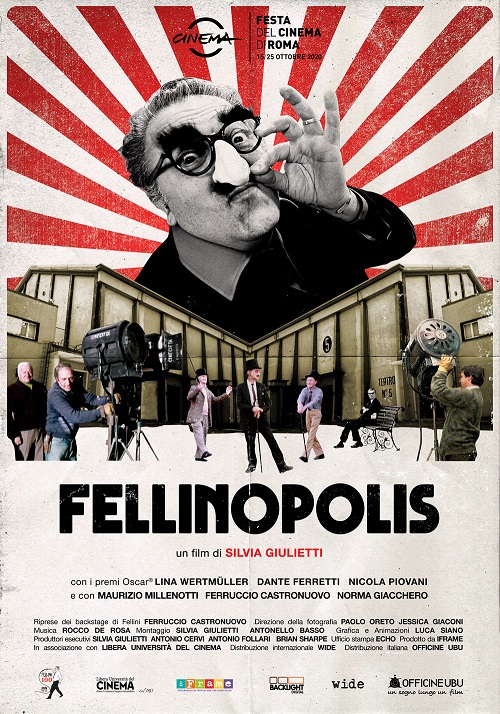A conversation with Silvia Giulietti
TORONTO – I had the privilege of sitting down in Toronto with Silvia Giulietti, Producer and Director of “Fellinopolis”, “Legal Death” and “Luchino Visconti’s Hidden Angels” – to name a few of her works. Giulietti was one of the first women – if not the first – in Italy to work on a film set as a Camera Assist, camera operator and eventually Director of Photography.
Giulietti’s foray into film in the 1980s was not a normal path, as she tells it. At fifteen she wasn’t necessarily obsessing over films or famous actors. Her mother was a legal representative for the film company Gaumont Italia, and Giulietti’s exposure to film came through frequent access to Cinecitta – which by her description was experienced somewhat like a playground. Her trajectory as a film professional thus began on a fateful day [at 16 years old] when her mother sent her on a delivery errand to Cinecitta’s Stage 5, Fellini’s famed hangout.
Her first steps in Stage 5 was on the set of Fellini’s “City of Women” (1980), and as she puts it, “without thinking at that moment that I would be involved in the industry”.
Throughout the conversation she described a bygone era in Italian cinema, an époque whence the storytellers of Italian cinema had something to say, not simply through dialogue, but by tapping into the deepest recesses of the human imagination.
Speaking of the Oscar Winning Federico Fellini for example: “He was like Walt Disney, who made his cartoons and everyone contributed to this work and they were aware that they were making a masterpiece that would remain in history. So everyone from the last machinist and toolmaker, you saw them happy to do [their work]: an army of labourers who moved the sets”.
Of Lina Wertmuller, for whom she worked as a set photographer, Giulietti remarked [referencing the 1974 film “Swept Away”]: “The intelligence of Lina to tell the story of a rich industrial women and a man labourer. Because in Italy at that time there was the clash between these two classes. Because many factories were increasing then, the great industrialists were expanding the country and then the more they expanded, the more extended the working class, and consequently the social divide. The intelligence of this woman to make a comedy in which there is the clash between these two worlds”., is really an art
Giulietti’s tales of her professional journey through Italy’s golden age of cinema were numerous, one more interesting than the next – but her focus remains on the present, and with one eye on Italy’s future.
“Today the market is not only Italian, it’s International. Italy matters, but my projects must be universal [and resonate] in Canada, Japan, China, and Africa etc. Because we are now a globalized cinema, a global culture and therefore the topics of cinema, literature, music, art, painting is universal. If I speak only to Italy we push ourselves into a corner”.
Giulietti is in fact piecing together her next film documentary, which pays homage to Ennio Flaiano’s 1971 Docu-series “Oceano Canada”, but is also a continuation of his exploration into the exploits of Italians living abroad.
Let’s understand, fifty years later, what has happened to these Italians after all this time, what have they done in this country”. Her admiration for Flaiano’s Documentary, which the David Di Donatello Awards recognized posthumously this year, is a taking off point for her current project. With the esteemed career that Silvia Giulietti has had, this next film of hers will surely become a great addition to an already enviable filmography.
In the pics above, Silvia Giulietti in the editorial office of Corriere Canadese and filming a film. Below is the poster of “Fellinopolis”
Massimo Volpe is a filmmaker and freelance writer from Toronto: he writes reviews of Italian films/content on Netflix







